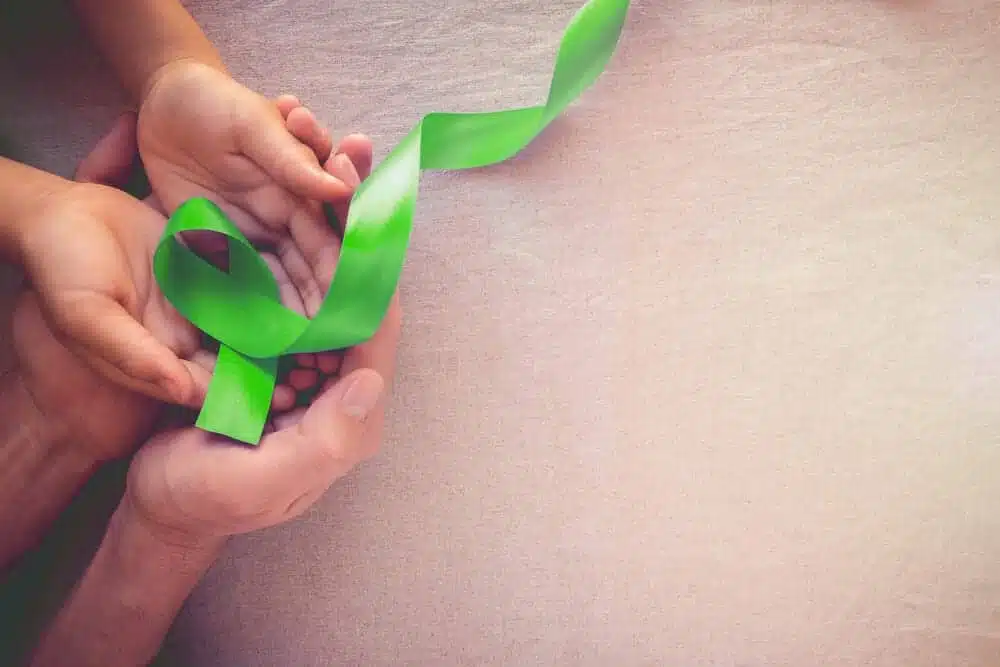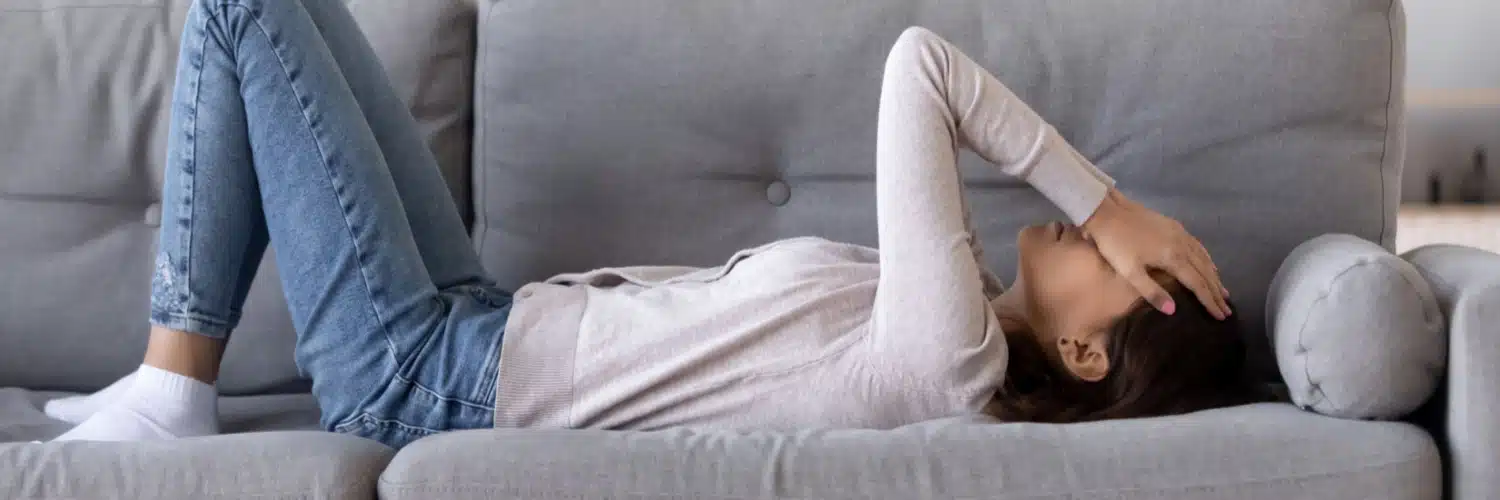
Are You Making The Most of Mental Health Month?
May is Mental Health Month! Mental health month is an opportunity for those with mental health issues to take an inventory of their condition, connect with others who also deal with mental health issues, and perhaps consider new treatment options if their current plan doesn’t seem to be working for them. It’s also an opportunity to celebrate that those with mental health issues can live productive, happy lives in spite of their condition.
Mental health issues are still one of the most misunderstood medical conditions in the world. Many countries don’t offer treatment or even believe that those with mental health issues are evil. Luckily, in the United States, acknowledgement, action, and acceptance have all come a long way.
In the early days of our country, those with “sickness of the mind” were sent away, so as not to embarrass their families. Patients were subjected to “rest cures” or, worse, isolation and electroshock therapy. Today, the knowledge about the inner workings of the brain, knowledge of how emotions can be altered, and how people with mental illness are seen by others have improved tremendously.
If you have a teen with a mental health issue, May is a great time to take steps and check in to ensure that your teen’s treatment plan is working. Encourage your teen to be proactive, to do self-checks, connect with other peers who have mental health disorders, ask for help if needed, and consider new treatment options if the current plan isn’t doing the trick.
Self-Checks
A lot of times, teens don’t want to make changes to what is working for them. But, when crisis set in, like COVID-19, you need to sit with your teen and review that self-care plan and go over the steps that help you in recovery:
- Focus on strengths
- Focus on solving problems
- Focus on the future instead of the past
- Focus on living instead of your illness
It is essential that young people with mental health issues keep their recovery on track at all times. Teens need to learn that physical, spiritual, and emotional health are all connected; supporting one supports the others. Tending to all areas of your life will increase the chance that your teen stays well. Check in with your teen to see if he/she is following these healthy living guidelines:
- Eat healthy foods, get enough sleep, exercise, and avoid drugs and alcohol.
- Manage stress and go for regular medical check-ups.
- Practice good hygiene to reduce the risk of illness, improve the way others view you, and improve how you view yourself.
- Keep in touch with friends to build your sense of belonging. Think about going to a support group meeting to make new friends.
- Try to do something you enjoy every day: dancing, watching a favorite TV show, listening to music, drawing, painting, or reading.
- Find ways to relax, like meditation, yoga, taking a bath or walking in nature.
It is important that your teen checks in with him or herself periodically. Without these self-checks, its harder to realize when things are changing or getting out of control. Checking in allows for the opportunity to evaluate your recovery. You may find that you need to readjust your treatment plan or try different coping skills.
Encourage your teen to keep a journal about their experiences. Journals are a great way to learn about oneself. Being completely honest when writing in a journal is critical; you need to let your guard down and accept your personal truth. This is a non-aggressive way to deal with stress and find out what you are really feeling.
Sharing these stories with others in their position can help teens find allies who truly do understand what they are going through.
Peers in the Trenches
It’s hard for teens to learn to trust. Once they can find people their own age who have similar issues, it can help them feel better. Knowing you are not alone is one of the best treatments for things like anxiety, depression, and bipolar disorder. “Many communities even have warmlines (free hotlines run by people with mental health conditions) that you can call to talk to someone and receive peer support.”
Research even suggests the many benefits of social connection within peer groups:
- Increased happiness
- Better health
- A longer life
- Emotional validation
- Comradery
- Increased problem solving skills
- Have a group that takes your issues seriously
Teens can find strength and resilience in times of stress when they feel connected to a broad community. They can expand their social network by looking into a community organizations that bring people together who share the same interests. Teens can also find local support groups for those with mental health issues, or consider volunteering to help the less fortunate or those who also have mental health issues.
Whatever your teen’s situation and interests, there is probably a volunteer opportunity to where they can make a significant contribution in the community. Volunteering helps “build strong connections with others – a proven way to protect your mental health.” And if your teen wants their volunteer time to matter, ensure the organization uses volunteers efficiently and productively.
This is all about finding connections your teen can rely on when they feel their recovery going a bit off track. The more resources that are available, the more likely your teen is to seek out help.
Seeking Help and Advice
Mental illness is like a roller coaster. It’s never a straight line. It’s full of twist and turns, ups and downs. This makes recovery feel like a never ending loop-de-loop. The roller coaster of mental illness along with the stigmas regarding mental health that remain have stopped many people from seeking out help. They, instead, choose to self-medicate with alcohol, drugs, eating disorders, risk taking, or ignoring symptoms. It is something you should constantly remind your teen of: there is no shame in seeking help. Your teen and your family are never alone. There is always someone else going through the same thing.
Seeking help starts with you. Self-help for your teen begins with self-awareness and self-discipline. Self-awareness helps your teen identify their triggers and sharpen their coping skills. Triggers vary for each person and can range from high stress, family dynamics, friends, romantic relationships, or even world events, like COVID-19.
Once your teen has identified their triggers, they must display the self-discipline that signals their ability to manage them. A lack of self-awareness and/or self-discipline can lead a teen to self-medication. If your teen has suddenly withdrawn or has been acting suspiciously, sit them down for a talk. Emphasize that self-medicating is destructive, not proactive, and that there are other tools you can consider for their treatment.
Also remind them that therapy “fosters help, empowerment, and motivation. It helps improve your life, relationships, and getting to the root of all problems.” Don’t be ashamed of seeking help during recovery. Recovery is about finding your true self, remembering who you are, and using your strengths to live your best life. Helping yourself through self-care and therapy improves both your mental health and physical health.
But, the same thing won’t work indefinitely in most cases. If your teen feels like they’re in a treatment slump, offer them some new choices that might be more effective.
Treatment Options
If you find that your recovery has taken a turn during this crisis that you didn’t expect, it might be the right time to try something new. Rehabilitation centers offer more than just talk therapy:
Art Therapy
Art therapy has been practiced in the United States since the 1940s. It is practiced by professionals who are licensed and certified. They must have both an understanding of art, as well as good psychological training in human behavior, therapy, and transformative healings. Art therapy is exactly what it sounds like. Rather than use talk therapy, treatment happens through the creation and discussion of art.
With art therapy treatment, the goal is to have teens in recovery feel comfortable expressing and discussing their negative experiences and emotions. For some teens, talk therapy and/or group therapy are too open. Many teens are very guarded about both their diagnosis and discussing what they are thinking and feeling. Art therapy “bypasses” this discomfort by moving the topic to the subject of a work of art.
Art therapy introduces a comfortable, soothing system of rules and guidelines that give a teen in recovery a non-threatening structure. Learning to paint, learning the techniques of drawing, getting a new appreciation for light, perspective, shadow, or contrast help the teen bring back a sense of order and structure. The creation of art takes that burden of structure and gives teens in therapy a chance to express themselves freely.
Music Therapy
Music therapy isn’t just about creating music, writing music, or singing music. A lot of it is “customizable based on the preferences and predispositions of the people involved. Music therapy is capable of addressing ALL aspects of music. This includes listening to music, creating music with instruments, using music for meditation purposes, and even singing for people that enjoy or are interested in this activity.”
Music therapy, regardless of its form, maintains a singular goal: releasing emotions in a safe space to deal with and discuss them. Since music can produce emotion all by itself, or bring back a memory as a particular song may have been playing during a critical moment in a teen’s life, music therapists must understand not only the theories of music, but also the therapeutic techniques needed to help teens deal with the emotions that music bring out. When put into a structured form of therapy, music allows both the therapists and the teen to quickly “gain access” to the negative or impairing emotions and deal with them in treatment.
Faith-Based Therapy
Though there are as many religions in the world as therapeutic approaches, most faith-based therapies in the United States are based in Christianity. There is nothing wrong with other faiths, but there are few that have facilities for faith-based therapy. For faith-based therapy to work, the teen must have an active spiritual life. Being active in the Christian faith, along with strong religious conviction, is essential for faith-based therapy candidates, because faith-based treatment requires a strong spiritual foundation to build on.
A Christian rehab approach will offer teens the opportunity to “use their existing faith as an extra pillar of strength to draw from. While basic Christian tenets advocate people to act independently, such as in old truism ‘The Lord helps those who help themselves,’ the central concept here is that the Christian faith is here to help.” Teens don’t have to face their illness alone; most Christians are part of a community of love that surrounds people in faith-based recovery programs to let them know they are not alone.
Equine Therapy
For teens who are creative and respond better to addressing their issues and problems through art, music, or drama, there is little need to look for other therapy options. Other teens take strength from their religious convictions and thrive under faith-based therapy. Equine therapy treatment helps a teen recover through the forging of a strong emotional and psychological connection with a horse. Horses embody strength, discipline, and loyalty. These characteristics are those that teens with mental health issues need to embrace.
Equine Therapy has been practiced in the United States since the late 1960s, and, for the right teen, can be an incredibly effective method of treatment with positive and amazing results. “The bond between humans and animals has always been high, and many people are already familiar with the decades-long relationships we establish with cats and dogs, allowing them to become treasured members of a household.”
Since horses are not everyday pets or members of most families, they represent an exciting and new adventure that goes beyond the daily struggles most teens with mental illness endure.
The various forms of alternative therapy are options that many families and teens don’t even know exist. It is essential that everyone is educated about the options so that teens can alter their treatment in times of crisis.

Conclusion
During Mental Health Month, take the opportunity to check in with your teen. Review symptoms of the relevant condition(s), have your teen do a self-check of their current mental state, connect them with communities, encourage them to ask for help, and offer them alternative therapies that could offer new sources of stimulation and creative ways to explore their emotions in a safe environment.
If your child is struggling with mental health, whether or not it’s related to COVID-19, the trained staff at Beachside is here to help!




